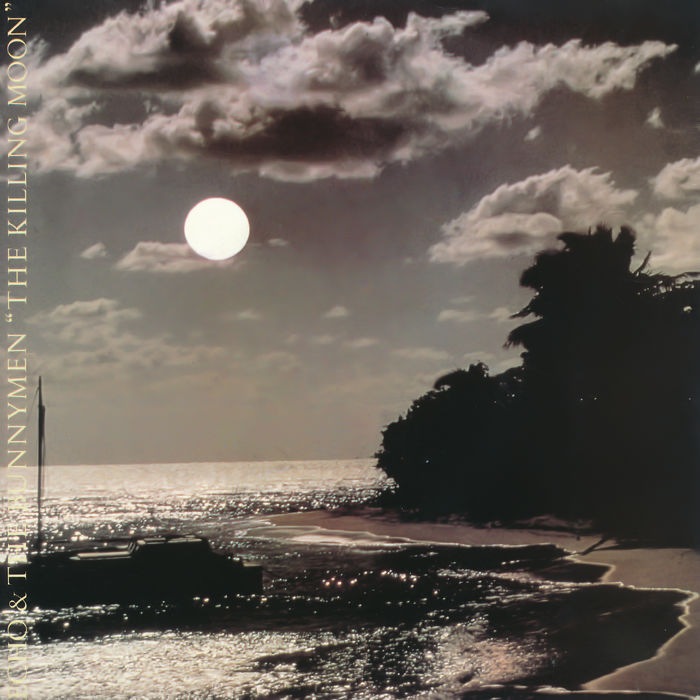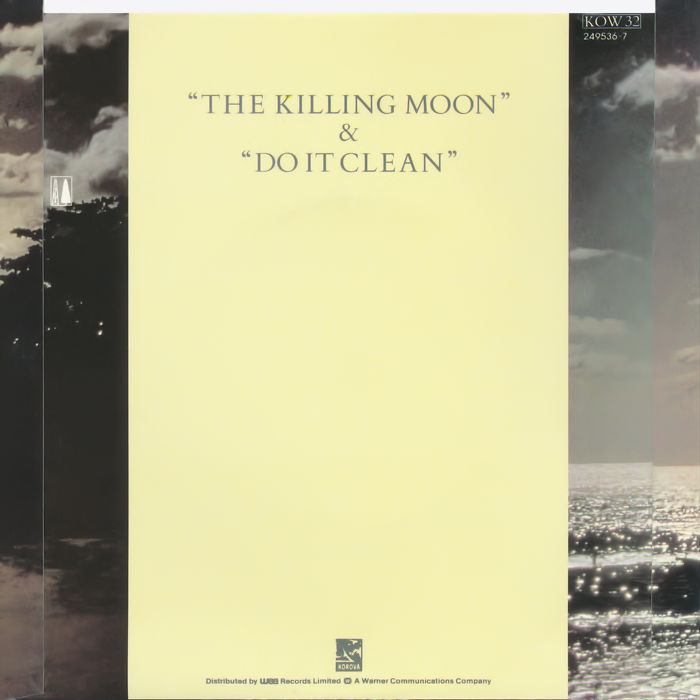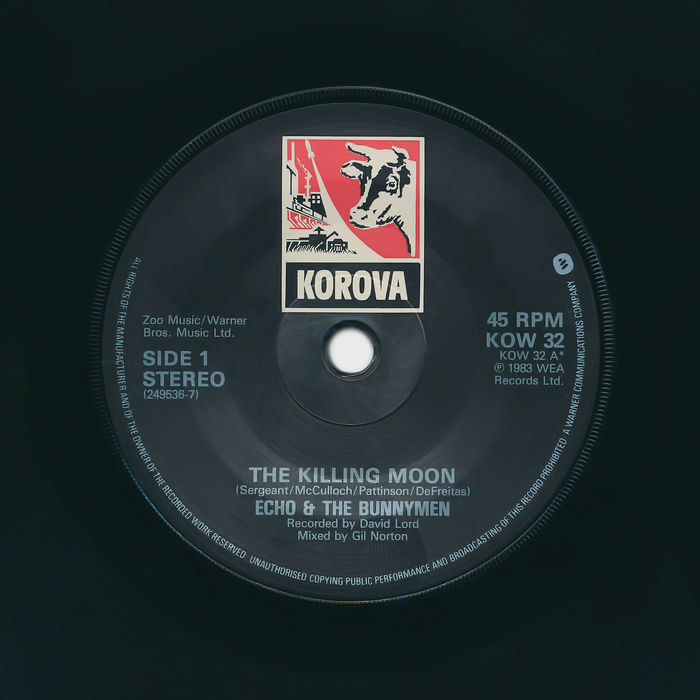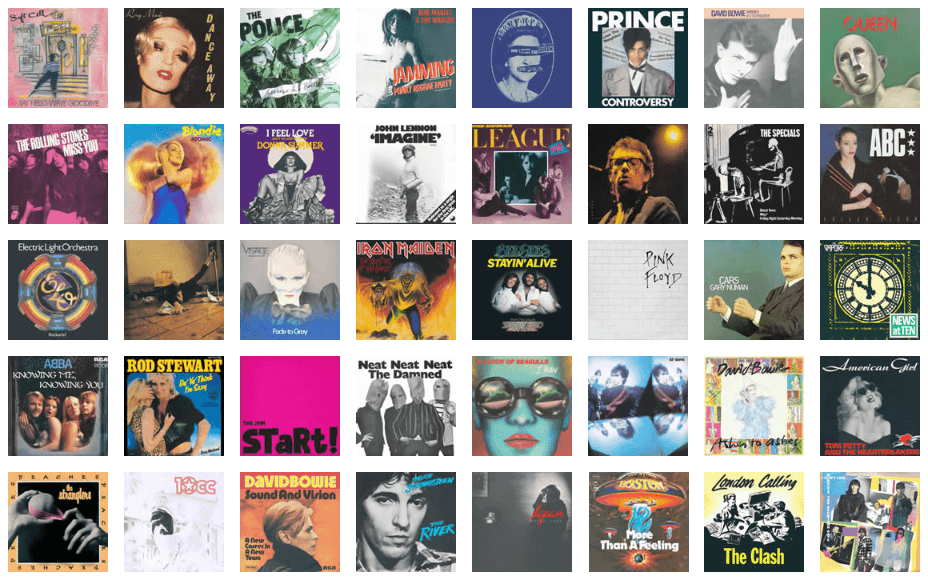The Story Behind The Song
Written in 1602 by William Shakespeare, it is the greatest soliloquy in English literature. Hamlet says:
To be or not to be, that is the question
Whether 'tis nobler in the mind to suffer
The slings and arrows of outrageous fortune,
Or to take arms against a sea of troubles,
And by opposing end them?
He is weighing up life and death, and whether it is preferable to stoically bear the suffering that fate brings or to confront it. Over 380 years later, Ian McCulloch writes the lyrics to Killing Moon, a song exploring similar themes which he describes as a soliloquy set to music and the greatest song in pop history. He explained to The Guardian in 2015 that it "is more than just a song. It's a psalm, almost hymnal. It's about everything, from birth to death to eternity and God – whatever that is – and the eternal battle between fate and the human will. It contains the answer to the meaning of life. It's my To be or not to be."
That's some review of your own work! Spoiler alert: the song does not explain the meaning of life (philosophical aside: "What's the meaning of life?" may be no more profound than asking "What's the meaning of glass?"). Here we provide the meaning of the song (other interpretations are available).
The Killing Moon is not an object or a person, but a time: a moment of reckoning. The lunar calendar has always held a special importance in virtually every human society for both secular and religious reasons. A full moon - when the moon is brightest - has particular significance and there are different types, e.g. harvest, blood and blue. The song opens with "Under blue moon, I saw you". A blue moon is a rare and ominous occurrence and the colour is also associated with subdued feelings. Straight away the mood is set.
The first verse is clearly about death but we can also distil something more abstract: it is about events that you can only forestall and never avoid. You cannot change your fate (e.g. death) no matter how you fight against it. Once this is realised in a moment of reckoning, a time when you accept your fate, you will find serenity. This mirrors the Stoic philosophy of Marcus Aurelius, who said "don't be afraid of death but welcome it" because it is as natural as the changing of the seasons; it is one of the things that happens to us. A more religious interpretation would be that once you accept your fate and give yourself to God, you will find peace.
The spiritual connotation of the chorus is obvious: "Fate Up against your will Through the thick and thin He will wait until You give yourself to him" but the personification also works if you consider "him" to be fate itself. In other words, through good and bad times (Shakespeare's slings and arrows) your destiny is waiting and you should surrender to it. Or, if you prefer, God is always waiting.
The words have a profundity not usually found in a pop song. The music is also exceptional. It was inspired by playing the chords of David Bowie's Space Oddity in reverse and the sound of balalaikas being played in a USSR hotel foyer! The cellos were double-tracked to make it sound orchestral and an autoharp reverbed to provide the explosive "whoosh". The twanging guitar during the intro was actually guitarist Will Sergeant playing around when he was tuning his instrument, but the producer insisted it was incorporated into the song. It is probably the group's best-known guitar line. That's fate for you.
Although acknowledging other classic songs might be considered the best-ever by their writers, for McCulloch, Killing Moon is the greatest. Is he correct? Undoubtedly, it is one of the finest singles of The Golden Years (1977-85) but it cannot quite reach the summit as our best song of 1984. His attempt in obtaining this accolade was - dreadful pun alert - Marred.
If Heaven Knows I'm Miserable Now is the more memorable, especially musically, Killing Moon has the deeper meaning. McCulloch explained how it came about: "One morning, I just sat bolt upright in bed with [the chorus lyric] in my head. You don't dream things like that and remember them. That's why I've always half credited the lyric to God. It's never happened before or since."
We're sure God is happy with a co-writing credit. Indeed, who is to say that such a once-in-a-lifetime inspiration is not divine?
Or fate.
We hereby instate The Killing Moon by Echo & The Bunnymen on The Wall as No.1 Best Single of 1984
"Greatest song in pop history?" Maybe, maybe not but it is undoubtedly one of the greatest songs of the 80s.Dave B




